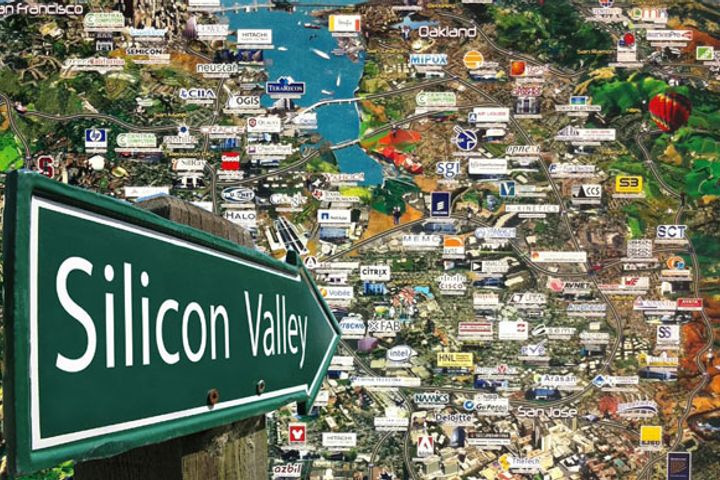 Market Conditions Push Chinese to Leave Silicon Valley, Return to China
Market Conditions Push Chinese to Leave Silicon Valley, Return to China(Yicai Global) Jan. 22 -- The Trump administration's immigration policy has triggered a tug-of-war between tech firms in Silicon Valley and Washington. Many American employers appear to be ignorant to subtle changes in the attitude of Chinese employees in the Valley who represent a dominant force in the global labor market.
Return to China
Many of the passengers on a recent flight from San Francisco to Shanghai worked in Silicon Valley or for Chinese tech companies doing business in the area.
A woman on the plane surnamed Zhang said she works at an optics firm in Sunnyvale in the San Francisco Bay Area. She took part in the H-1B visa lottery in the US after earning her PhD. She won and has been working in the US for two years, but she is considering moving back to China.
"My job is special, so I need to go through a strict review process each time I return to China," she said. "I even had to cancel a flight once because the review lasted for more than a month."
"If only I didn't have a young baby, I would have returned to China right away," she said. "My parents are getting old, and I'm their only child."
Chen Yuemeng, founder and chief executive of Shanghai-based wearable device firm HiCling Technology, was in a similar situation ten years ago. He decided to return to Shanghai with his family and started his own business in 2013 after working in Silicon Valley for 10 years.
"I worked in the semiconductor industry throughout my years in Silicon Valley," Chen said. "After studying the Chinese market I immediately realized that China has a much bigger market and offers more opportunities than Silicon Valley."
Silicon Valley was once a paradise for Chinese engineers and technicians working in the southern Bay Area. However, China's business environment, consumer market and demand for high-tech professionals have changed dramatically over the years.
The US is still the global leader for overall research and development capabilities, but China has been catching up -- and even outpacing the US, in some cases -- in the pursuit of emerging technologies such as artificial intelligence, e-commerce and mobile payment.
China is home to BAT (Baidu Inc., Alibaba Group Holding Ltd. and Tencent Holdings Ltd.) and almost 30 unicorns, making its blessing second in size only to that of the US, per statistics from research agency CB Insights.
The Chinese government kicked off a campaign to attract 1,000 leading researchers from overseas per year in 2008. With the introduction of its AI development strategy, the government plans to invest tens of billions of dollars in related businesses each year to encourage Chinese AI professionals working in foreign countries to return to their homeland.
Poor US Career Prospects
Frustrated by the status quo, some ambitious Chinese engineers in Silicon Valley have started to build close connections with businesses and investors back in their home country, preparing to introduce something of their own.
One man worked for FCA US LLC (Chrysler) in Detroit after graduating from an automotive engineering course in the US. He joined the LeSEE supercar team as an employee with Faraday & Future Inc. He is seeking a Chinese partner to start his own electric car firm.
He traveled between the Valley and Shenzhen many times last year. "I'm looking for the right opportunity to start my own business," he said. "The Chinese market is huge, but companies there vary greatly in quality, so I must be very careful in selecting a partner. From the long-term perspective, I'll return to China. That's for sure, but I'm waiting for the suitable opportunity to arise."
A Chinese software engineer who worked for Apple Inc. for many years said, "China is certainly better. Here's just a 'big village' compared with big Chinese cities."
"My first salary this year is a few hundred dollars less than the one that I got two weeks earlier," he wrote on WeChat. "Everything is taxed in this country."
The software engineer is worried about the rising cost of living and 70-hour workweeks in China, so he decided to stay in the US until he has planned out everything for returning to China.
Chinese Startups Eye Silicon Valley
A growing number of Chinese startups have set up offices in the Valley to keep abreast of the latest developments in the global tech market.
Chinese electric vehicle startup Singulato Motors opened a US research and innovation center in Silicon Valley on Jan. 15. Huang Yu, an experienced AI scientist who previously worked at Intel Corp. and Badu's American subsidiary, heads it.
Baidu recently unveiled a robotics and business intelligence laboratory in the Valley and recruited three top-tier AI experts -- Kenneth Ward Church, Human Jun and Xing Hue.
For some Chinese, Silicon Valley has lost its appeal and may seem behind the times. It does not have WeChat pay or facial recognition services. However, it still has the largest number of A-list technology specialists and the highest concentration of global tech companies and universities. Its enterprise-style management and operating model has virtually eliminated bureaucratic and corrupt practices.
Perhaps, Silicon Valley no longer holds the same allure it once did for Chinese engineers, but that may not be bad news for companies there. Given the increasing rate of economic and technology globalization, Silicon Valley and China may become mutually indispensable to each other's existence one day.